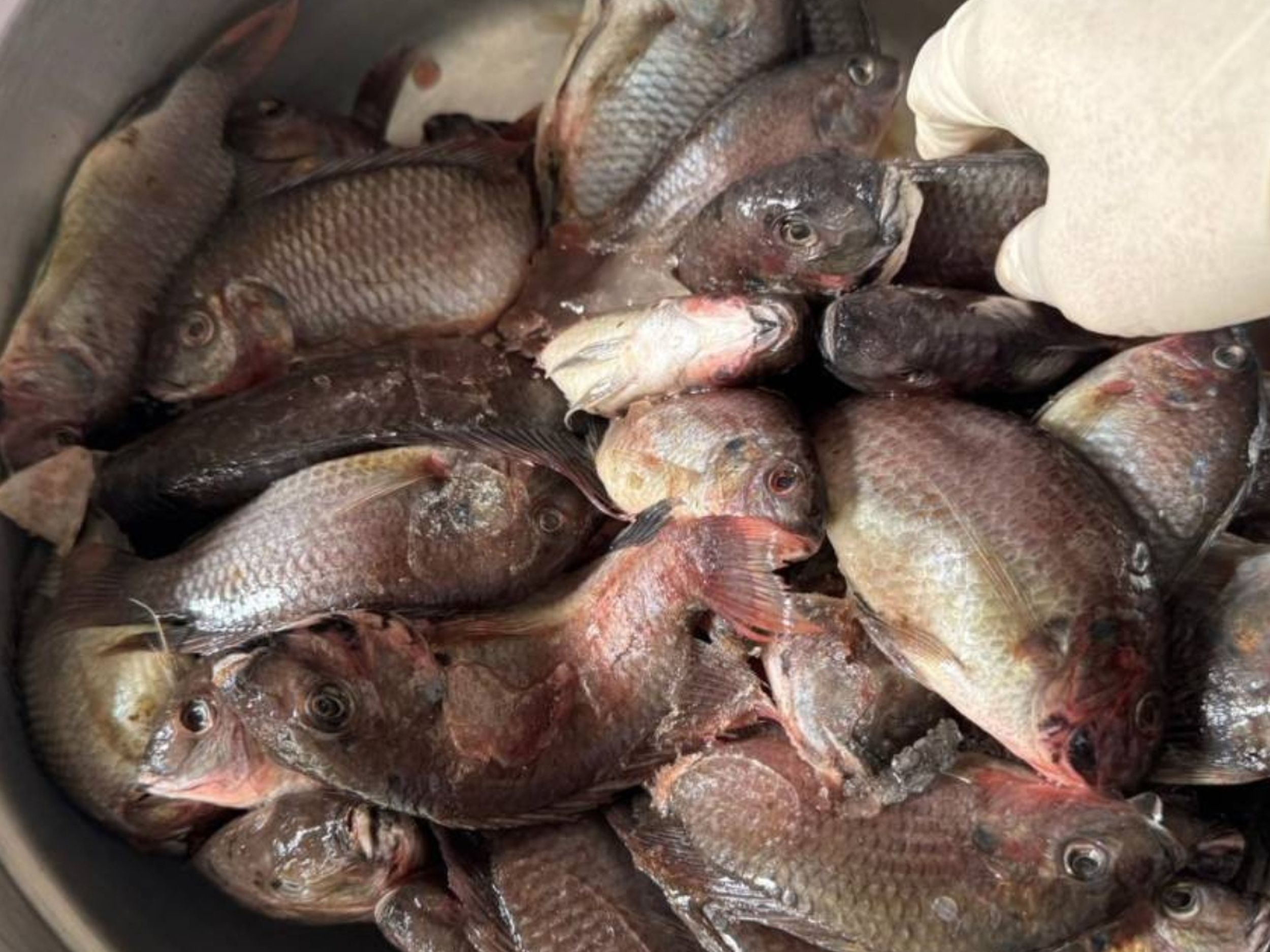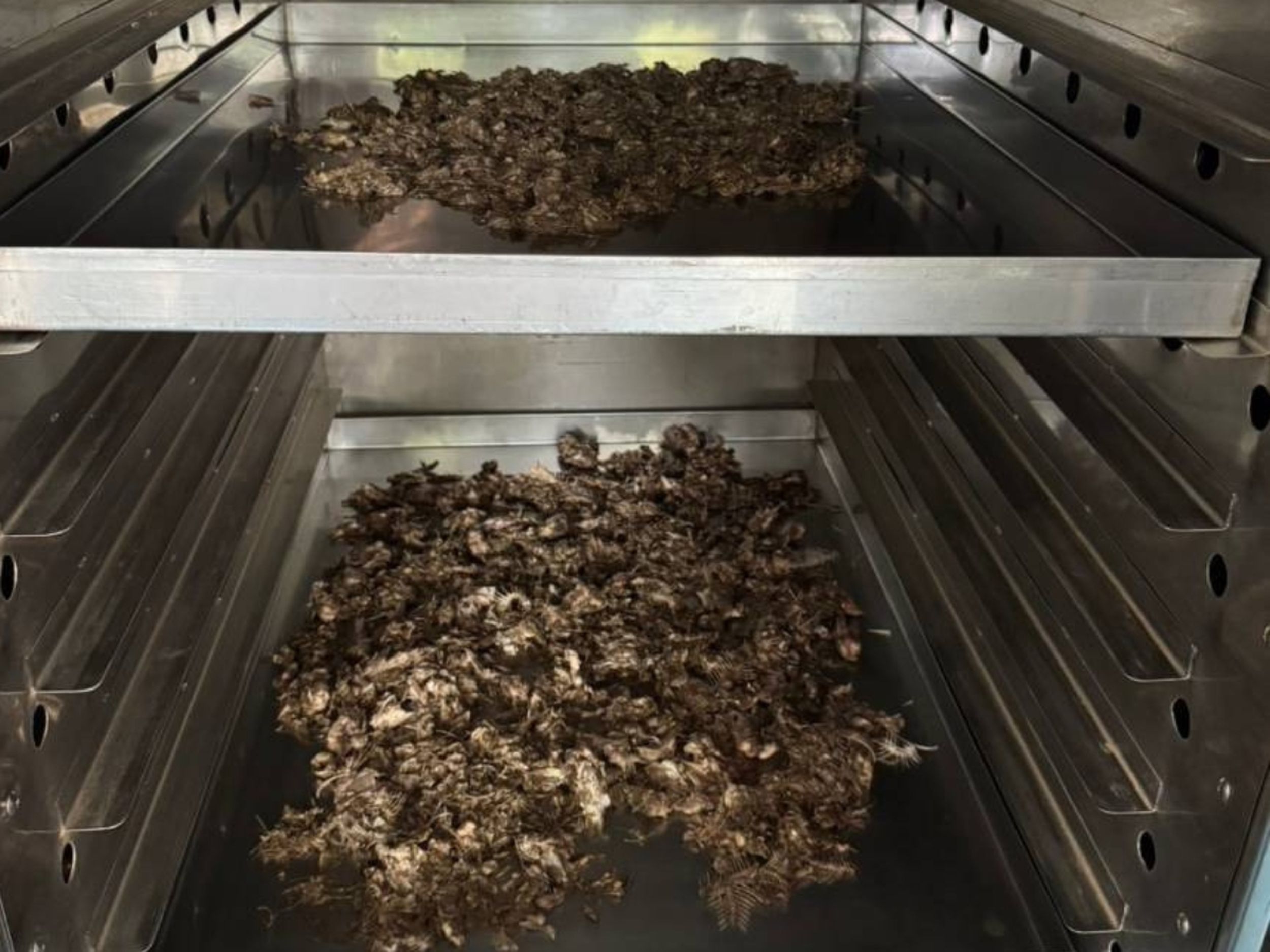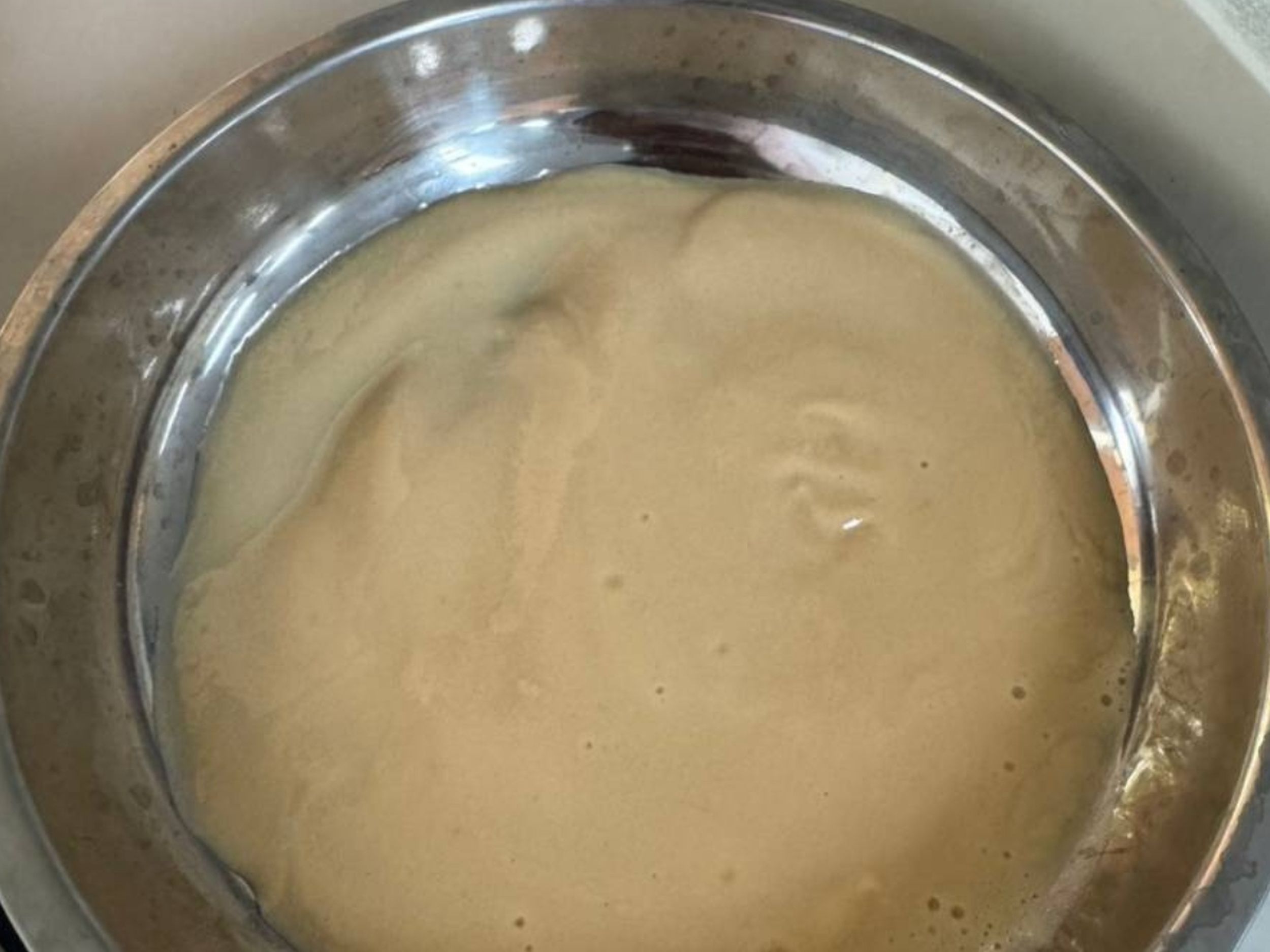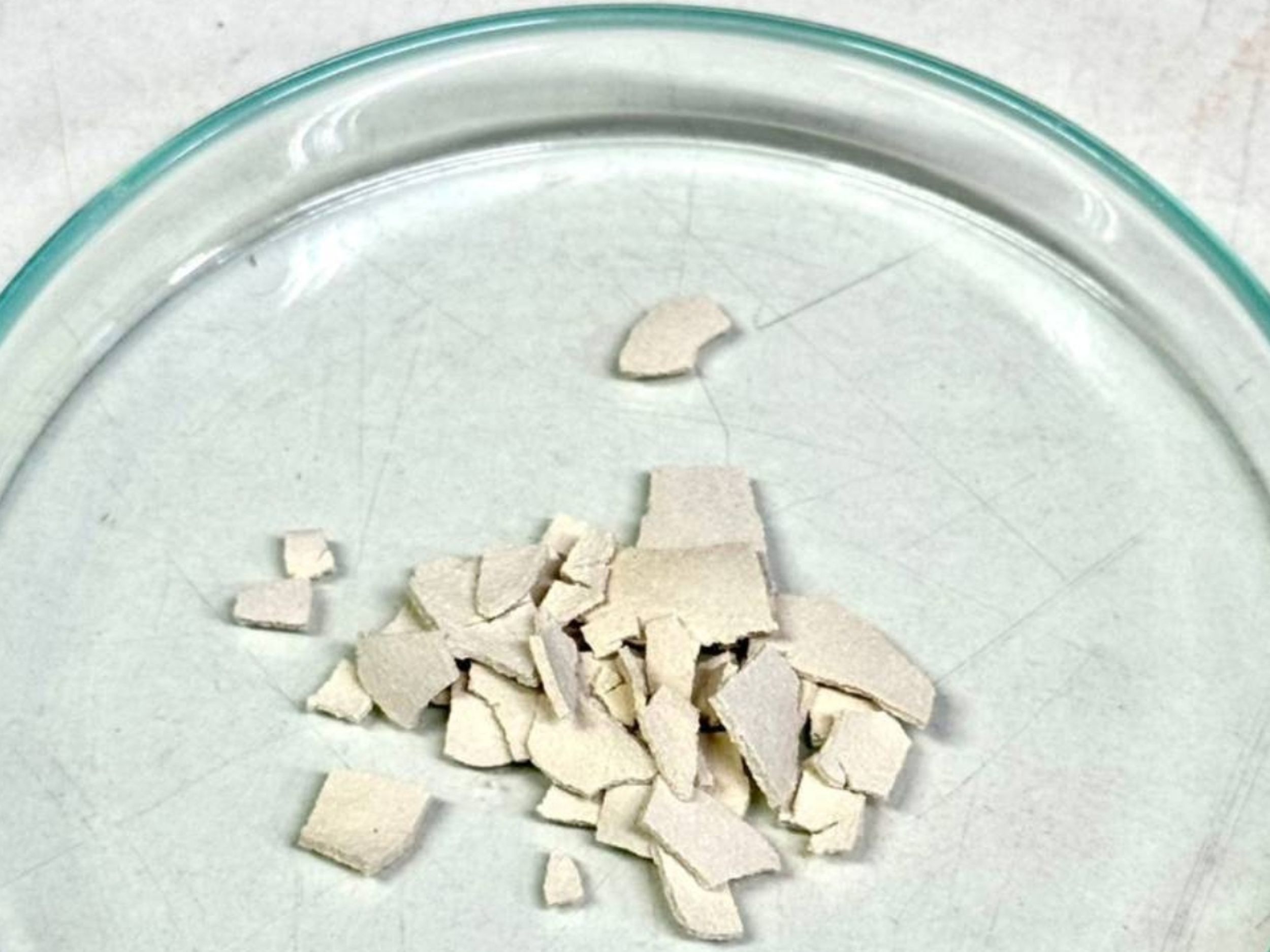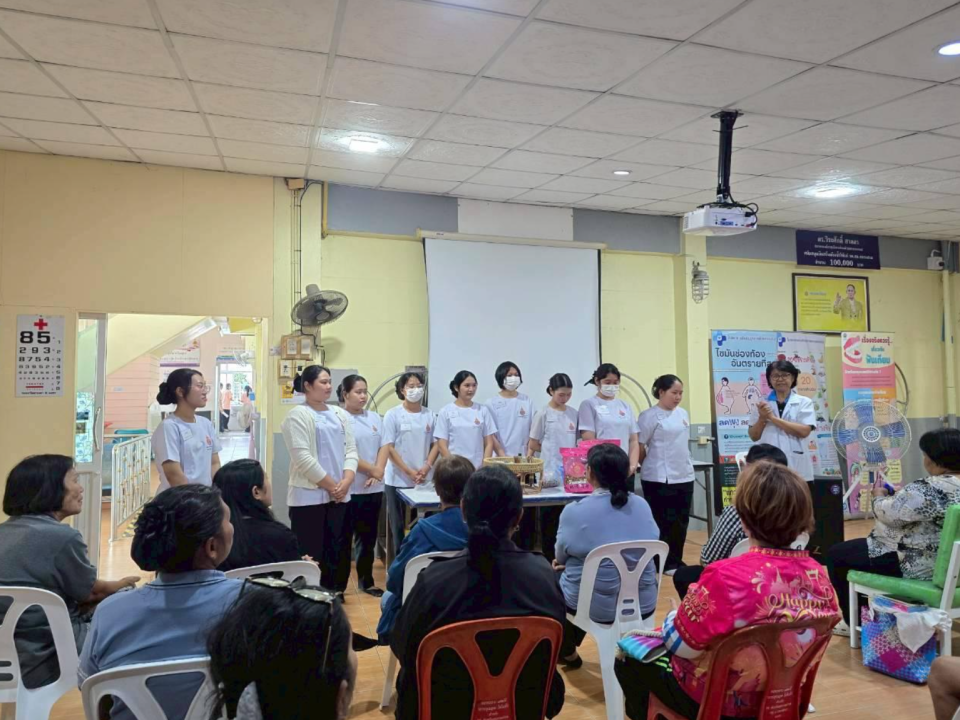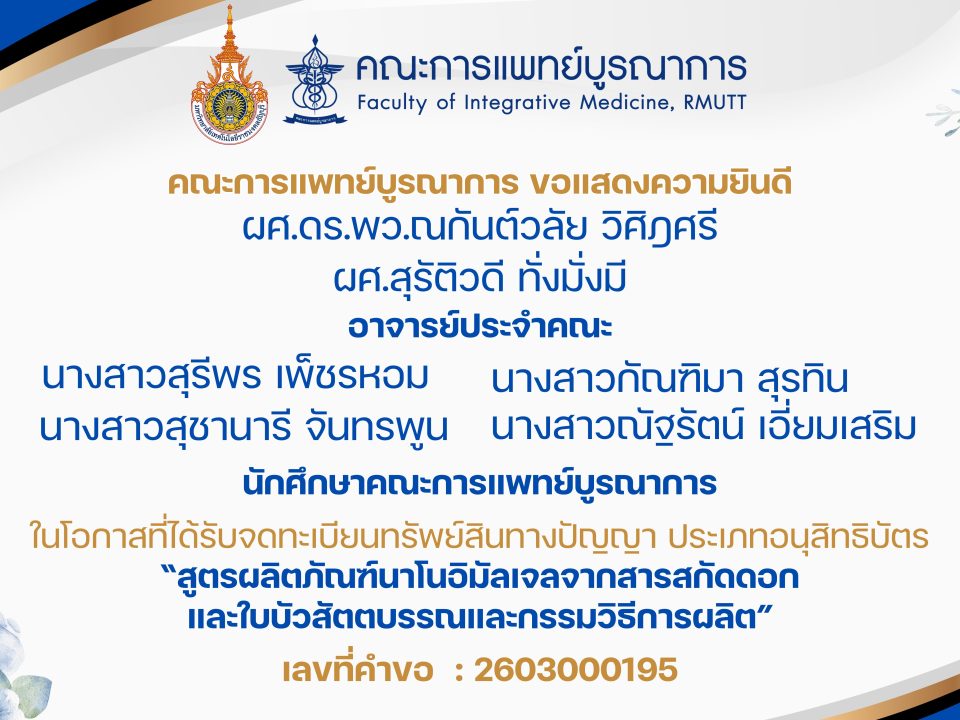
ยกเลิกประกาศประกวดราคาซื้อ ชุดครุภัณฑ์ยกระดับห้องปฏิบัติการตามมาตรฐาน ESPReL จานวน 1 ชุด ด้วยวิธีประกวดราคาอิเล็กทรอนิกส์ (e-bidding)
07/07/2025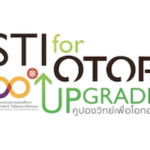
คณะการแพทย์บูรณาการ มทร.ธัญบุรี ขับเคลื่อนวิทยาศาสตร์สุขภาพเพื่อชุมชน ผ่านโครงการคูปองวิทย์และทุนวิจัย สกสว.
07/07/2025เปลี่ยนปลารุกรานให้เกิดคุณค่า! นักวิจัย มทร.ธัญบุรี พัฒนาผลิตภัณฑ์เสริมแคลเซียมจากปลาหมอคางดำ ตอบโจทย์สิ่งแวดล้อมและสุขภาพ : Turning Invasive Fish into Value! RMUTT Researchers Develop Calcium Supplement from Blackchin Tilapia, Addressing Both Environmental and Health Challenges
ปัญหาการรุกรานของ ปลาหมอคางดำ (Blackchin tilapia, Sarotherodon melanotheron) ถือเป็นหนึ่งในประเด็นสำคัญด้านสิ่งแวดล้อมของประเทศไทยในช่วงทศวรรษที่ผ่านมา เนื่องจากปลาชนิดนี้เป็น สัตว์น้ำต่างถิ่น (Alien species) ที่แพร่กระจายเข้าสู่แหล่งน้ำจืดและน้ำกร่อยของไทย โดยเฉพาะในพื้นที่ลุ่มน้ำภาคกลางและปากแม่น้ำชายฝั่งทะเล ด้วยอัตราการขยายพันธุ์ที่รวดเร็ว ความทนทานต่อสภาพแวดล้อม และพฤติกรรมการแย่งอาหารและที่อยู่อาศัย ทำให้ปลาหมอคางดำสามารถเข้ามาแทนที่และลดจำนวน พันธุ์ปลาพื้นถิ่น และ สัตว์น้ำเศรษฐกิจ ที่มีคุณค่าทางเศรษฐกิจและวัฒนธรรม
ที่ผ่านมา แนวทางการจัดการและกำจัดปลาหมอคางดำมีหลายวิธี เช่น
-
การจับเพื่อลดปริมาณ โดยการทำประมงเชิงรุกในแหล่งน้ำที่พบการแพร่ระบาด
-
การรณรงค์บริโภค เพื่อสร้างมูลค่าทางเศรษฐกิจและเป็นแรงจูงใจในการจับออกจากธรรมชาติ
-
การกำจัดเชิงกลและชีววิธี เช่น การควบคุมจำนวนโดยใช้พันธุ์ปลาคู่แข่งหรือการฟื้นฟูระบบนิเวศให้มีความสมดุล
อย่างไรก็ตาม วิธีเหล่านี้ยังไม่สามารถควบคุมประชากรปลาหมอคางดำได้อย่างยั่งยืน อีกทั้งยังมีปัญหาของเหลือทิ้งจากการจับจำนวนมาก เช่น ก้าง กระดูก และซากปลา ที่ไม่ได้ถูกนำไปใช้ประโยชน์อย่างคุ้มค่า จึงเกิดคำถามสำคัญว่า “เราจะสามารถเปลี่ยนปัญหาการรุกรานของปลาหมอคางดำให้กลายเป็นโอกาสได้อย่างไร?”
คำตอบหนึ่งที่ชัดเจน คือ การนำนวัตกรรมการแปรรูปและสร้างมูลค่าเพิ่มจากซากปลา โดยเฉพาะการสกัดสารแคลเซียมจากก้างและโครงกระดูก เพื่อใช้เป็นวัตถุดิบด้านสุขภาพและอุตสาหกรรม ซึ่งไม่เพียงช่วยลดจำนวนปลาหมอคางดำในธรรมชาติ แต่ยังเป็นการเปลี่ยนภัยคุกคามทางนิเวศให้กลับมาเป็น คุณค่าทางเศรษฐกิจและสังคม
ท่ามกลางความท้าทายดังกล่าว คณะนักวิจัยจาก คณะการแพทย์บูรณาการ มหาวิทยาลัยเทคโนโลยีราชมงคลธัญบุรี (มทร.ธัญบุรี) นำโดย ผู้ช่วยศาสตราจารย์ ดร.วัชระ ดำจุติ และคณะ ได้พัฒนานวัตกรรมการแปรรูป ปลาหมอคางดำ ซึ่งเดิมเป็น “ผู้รุกล้ำระบบนิเวศ” ให้กลายเป็น “แหล่งวัตถุดิบที่มีคุณค่า” ผ่านกระบวนการสกัดแคลเซียมจากก้างและโครงกระดูก ด้วยเทคโนโลยีที่ปลอดภัย ไม่ใช้สารเคมีอันตราย และคำนึงถึงหลักเศรษฐกิจหมุนเวียน (Circular Economy)
ผลงานวิจัยนี้ไม่เพียงตอบโจทย์การจัดการสัตว์น้ำรุกรานเท่านั้น แต่ยังช่วยเพิ่มมูลค่าให้กับของเหลือทิ้ง โดยสามารถนำมาพัฒนาเป็น ผลิตภัณฑ์เสริมแคลเซียมเพื่อสุขภาพ และวัตถุดิบในอุตสาหกรรมต่าง ๆ เช่น อาหารเสริม เครื่องสำอาง และวัสดุทางการแพทย์ ซึ่งแสดงให้เห็นถึงการเปลี่ยน “ปัญหา” ให้เป็น “โอกาส” อย่างเป็นรูปธรรม
ความร่วมมือและการต่อยอด
เพื่อให้การวิจัยนี้มีความครอบคลุมและเกิดประโยชน์จริงในเชิงนิเวศและเศรษฐกิจ ทีมวิจัยได้ทำงานร่วมกับหน่วยงานต่าง ๆ ได้แก่:
-
นายวรรธนัย ศรีศักดา นักวิชาการประมง สังกัดกองวิจัยและพัฒนาการเพาะเลี้ยงสัตว์น้ำชายฝั่ง กรมประมง ในการวิจัยเชิงเทคนิคและการประเมินผลกระทบด้านนิเวศ
-
บริษัทภาคเอกชน เพื่อพัฒนาสายการผลิตเชิงอุตสาหกรรมและยกระดับสู่ผลิตภัณฑ์เชิงพาณิชย์
ผลจากการทำงานเชิงบูรณาการนี้นำไปสู่การ ยื่นขออนุสิทธิบัตร สำหรับกระบวนการผลิตดังกล่าว ซึ่งถือเป็นการสร้างองค์ความรู้ใหม่ที่มีเอกลักษณ์และสามารถต่อยอดได้จริง
ความสำคัญเชิงสิ่งแวดล้อมและสังคม
-
สิ่งแวดล้อม: ลดจำนวนสัตว์น้ำรุกราน ฟื้นฟูสมดุลทางนิเวศ และอนุรักษ์ความหลากหลายทางชีวภาพ
-
สังคมและเศรษฐกิจ: สร้างมูลค่าเพิ่มจากของเหลือทิ้ง เป็นแหล่งรายได้ใหม่ให้กับชุมชนประมง และสนับสนุนเศรษฐกิจหมุนเวียน
-
ระดับโลก: สอดคล้องกับเป้าหมายการพัฒนาที่ยั่งยืน (SDGs) โดยเฉพาะ SDG 14 (Life Below Water), SDG 15 (Life on Land) และ SDG 12 (Responsible Consumption and Production)
